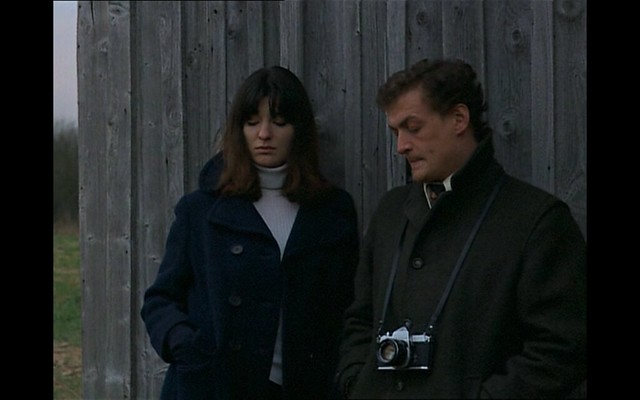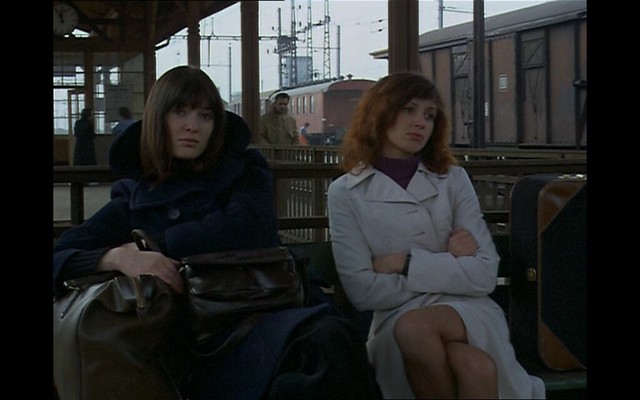





In the beginning, we are introduced to a winter landscape of rural Switzerland, cold and dreary and desolate. There is a film crew setting up a dolly tracking shot from a distance. A female voice preludes the theme of the film - how giving context to a film is important - the time, 1974, the place Switzerland, etc and the film's got to do with normalizing hope. What unfolds for the next hour and a half is a working class romance between an out of towner waitress and a local engineer turned politician. The center of the world is wherever you are - each of us as a center.
Adriana (Olimpia Carlisi) is a tall Italian from Venezia region arriving to a small rural town in Switzerland. She takes a job as a waitress at a local cafe where regulars hang out. Paul (Philippe Léotard), an engineer with a boxer's face, is being recruited and groomed by a local party officials to be a candidate for an upcoming elections for a seat in a local council or something. They are pushing him because he is young, married, a working class technician, someone who is obviously not a politician. Mrs. Schmidt, who owns the cafe, warns Adriana not to get into political conversations with the patrons. 'Business and politics don't mix'.
Adriana gets few sexist jokes and butt grabs from the locals at the cafe but she is a toughie and can handle them. She is an all around gal who's not born yesterday. She gets Paul's attention as he is in town for the election campaign and asks her out. It's a working class romance. But we know where it's going and it's not going to go well. People gossip and Paul's naive insistence that what's private affair is private while running for a political office is not going well. Adriana is just along for the ride. She keeps saying Paul doesn't really know her.
Alain Tanner's observation on a working class micro-affairs takes a cynical tone on Paul's false sense of hope - that he will leave his wife and move in with Adriana in to some fancy apartment. His hubris of showing off his 'Italian girlfriend' without thinking twice about what it means to his election, that it's all in context of the system- liberal democracy, class, sex in the 70s Switzerland. Election is just red herring because his loss is only mentioned in passing and everyone goes on the way it was before. It's no biggie: Politics is not a big deal either with the elites - they always can find another bloke or stay with the establishment, or working class - they can stop pretending to understand what those political slogans mean and go back to their lives. Adriana decides to leave town because she doesn't really know what she wants. It's her own volition. She will go and get a job at some factory. Everyone is in the middle of his/her world.
I understand what Tanner is trying to do in Le milieu du monde, but it's not all that successful. Carlisi and Léotard are affable enough. Juliette Berto shows up as a sexy peer waitress. But the matter-of-fact presentation and dreary winter setting are dry as hell. I'd try other Tanner's films some time soon.